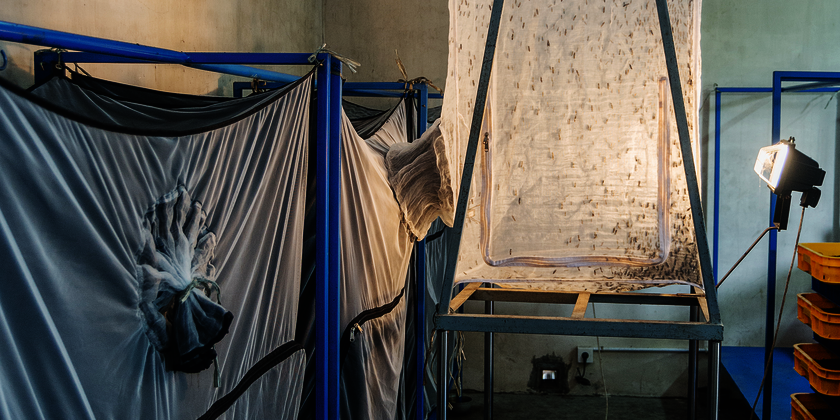Department Sanitation, Water and Solid Waste for Development
BIWAP - Boosting Insect Waste Processing

An Innosuisse project in collaboration with TicInsect with focus on several distinct processing units to enhance effectivity and efficiently, both connected closely to cost which again influences financial viability of the facility.
The BIWAP project has identified key research gaps in operation of a Black Soldier Fly waste processing facility, specifically in three different processing units of a facility: Fly Nursery, Waste Pretreatment and Waste Treatment.
In the nursery, fly mating and oviposition depend on fly density and other controlled conditions for high output production. Here the focus is set on improving the method of automated monitoring of fly density in mating cages and controlling the aperture between pupation and mating cages.
In waste pretreatment, we explore different mechanical options to enhance digestibility of fibrous waste. Such waste substrates are abundant but conventionally not used given their limited larvae growth impact. Improving digestibility of such waste for the larvae can widen the scope of possible waste sources that can be used in BSF processing (e.g. garden and yard waste), which show to be of high importance in the context of the implementing partner.
In waste treatment, the focus is set on providing the ideal climatic conditions for the larvae, exploring the possible use of synergies among treatment chambers using climate and ventilation control. Besides a suitable substrate, providing the ideal climatic conditions is key to ensuring effective and stable conversion and rapid and high larvae growth. We focus on climate control in smaller chambers where heat benefits of the metabolic process by the BSF larvae can best be exploited to drive the process in other batches.
